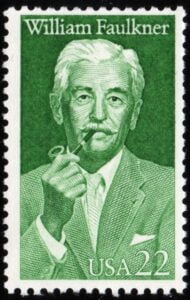Much of the important fiction produced in the 20th Century came from the South, which, before the turn of the century, was not much noted for literary excellence. As early as the 1830s, for example, Edgar Allen Poe decried the sparse attention Southern writers received in Boston and New York, then literary centers. After the Civil War, Southern writers initiated the “lost cause” tradition, producing fiction that served to perpetuate myths of the “Old South,” both positive and negative.
A number of influences combined that ultimately resulted in what Louis Rubin at the University of North Carolina termed the Southern Literary Renaissance. One of them was a deliberate rejection of the inauthenticity of “lost cause” fiction. Another was a significant essay by H. L. Mencken, “The Sahara of the Bozart,” in which he decried the utter lack of good writing in what he termed the culturally barren South. Rubin declared that the Renaissance began during the early 1920s as part of the Harlem Renaissance when Jean Toomer published his modernist study of the Black south is his experimental work Cane.
Two concurrent literary movements in Richmond, and Nashville, Tennessee also contributed to the rise of new and better writing. In Richmond, the novelist Ellen Glasgow and others with literary interests founded The Review, an outlet for aspiring writers. In Nashville, at Vanderbilt University, a group of professors and students began another journal, The Fugitive, to publish their own writing and that of others from the South and elsewhere. Important in this group were John Crowe Ransom, Donald Davidson, Allan Tate, Robert Penn Warren, and Andrew Lytle. Ransom and Davidson were primarily poets. Tate, Warren and Lytle all produced fiction of considerable merit, with Warren, ultimately, as the most significant member of the group.
William Faulkner, however, was without doubt the most significant influence on the rise of modern Southern fiction. From a fairly prominent Mississippi family, Faulkner, without the benefit of a movement and with less than a high-school education, emerged as one of the most important of all American novelists; Faulkner, Herman Melville and Henry James are the novelists many critics consider the best US novelists to date.
In the 1920s and 30s, Faulkner a series of novels, many of which are considered classics: The Sound and the Fury (1929), As I Lay Dying (1930), Sanctuary (1931), Light in August (1932), Absalom, Absalom! (1936), and Go,Down, Moses (1942). Faulkner’s series of novels helped establish both a belief in other Southern writers that they could produce viable works and a standard to which they could aspire.

Faulkner’s novels are not easy to read partly because of his use of the stream-of consciousness form of narration pioneered, in English, by the British writers, James Joyce and Virginia Woolf. The technique places the reader inside of the mind of characters central to his fiction, a technique that is probably more realistic than the standard third-person narrator or the use of the first person “I” narrator; however, not all of Faulkner’s novels feature stream-of-consciousness narrators, notably Light in August, probably Faulkner’s most immediately accessible novel.
Light in August was Faulkner’s eighth novel; he began to write it in August 1931 under the title “Dark House.” He started with Gail Hightower as the central character, then added Lena Grove and Joe Christmas. Faulkner’s wife Estelle provided the final title of the novel when, one evening, she noted the particular quality of light in August. At that point, Faulkner said “That’s it” and went inside to mark through “Dark House” and rename the novel.
Light in August, a strongly psychological novel, features a three part structure. The first section occurs in the immediate present; the second long section covers the history of the major character Joe Christmas; the final section returns to the immediate present.
A major theme in Faulkner’s work involves the disintegration of family in the modern world. Light in August clearly illustrates how a young person can be ruined by toxic family environments. Joe Christmas, the central character in the novel, is born illegitimately to the daughter of a blatantly racist laborer, who allows his daughter to die in childbirth and then abandons her “parchment-skinned” son to an orphanage on Christmas Eve; the attendants name him Joe Christmas. In the orphanage the child is taunted for being of a possibly mixed race.
Joe Christmas’s problems evolve even more tragically after he is adopted by a viciously cruel religious fanatic and his weak wife, the McEacherns. The foster father tries to beat his son into an acceptance of his staunch religiosity. An ill-fated relationship with the wrong sort of woman further warps Joe Christmas’s sensibility. When he arrives in Jefferson, Mississippi, he seems already doomed.
Faulkner creates other characters in the novel who help establish a spectrum of suffering. Lena Grove, naively impregnated, by a total cad seeks to find the father of her child. Byron Bunch is a pragmatic survivor and the ruined Presbyterian minister Gail Hightower struggles to maintain some semblance of balance in the midst of his idolatrous reverence for the Confederate cause. Through these differing characters, Faulkner presents the extremes of adaptation to both the horrors and joys of life. As expected from Faulkner, no conventional “happy endings” evolve but self-awareness does occur for at least one of the characters.




































